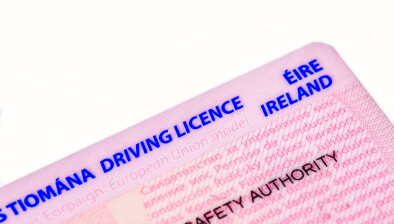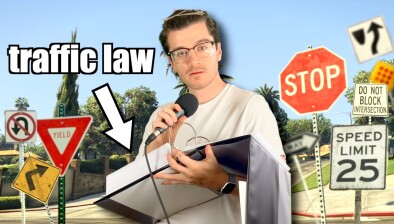Court of Appeal: Appeal allowed in taxi licence prosecution case

The Court of Appeal has allowed an appeal against a judgment of the High Court which found that the District Court did not err in dismissing a case against a man who operated a taxi service without the licences required by the Taxi Regulation Acts 2013-2016.

About this case:
- Citation:[2025] IECA 133
- Judgment:
- Court:Court of Appeal
- Judge:Ms Justice Nuala Butler
Delivering judgment for the High Court, Ms Justice Nuala Butler emphasised that “even where a statutory power is expressly conferred to do something or seek information in a particular way, this does not deprive the relevant investigator of the entitlement to seek the same information on a voluntary basis. The difference lies in the coercive nature of the request — the subject of an investigation must comply with a request made under a statutory power or face the legal consequences for failing to do so. This is simply not the case where a request is made voluntarily.”
Background
The respondent was prosecuted before the District Court for offences concerning the offering of taxi services when neither he nor the vehicle he was driving were licensed as required by the Taxi Regulation Acts 2013-2016, following a “covert test purchase” by a Mr Carey, an employee of the appellant who had been appointed as an authorised person under s.40(1) of the 2013 Act.
Mr Carey did not expressly invoke any statutory power under the 2013 Act during the course of his dealings with the respondent, which included identifying himself as compliance officer of the appellant, conducting a brief interview with the respondent and seeking repayment of the €20 note he had used to pay for the taxi ride.
The respondent argued that the powers of an authorised person appointed under s.40(1) were limited to those set out in s.40(3), which are confined to the investigation of breaches of the Act or related codes by licensed persons, and as the respondent did not hold a licence, the authorised person’s investigation of him was ultra vires.
The District Court dismissed the case on the basis that having been appointed under s.40(1), Mr Carey was not empowered under s.40(3) thereof “to engage in activities targeting unlicensed operators” and where the carrying out of a test purchase or “setting a trap” was not permitted under s.40.
A case was stated to the High Court on whether the district judge was correct in law in dismissing the case.
The High Court
Ms Justice Niamh Hyland in the High Court found that having regard to the wording of s.40(3), an authorised person was not empowered to engage in activities targeting unlicensed operators.
The judge determined that an authorised person was limited to carrying out functions identified in the Act and that there is no statutory provision for functions which are not statutorily conferred.
Grounds of Appeal
The appellant appealed to the Court of Appeal, contending that the High Court erred in concluding that an authorised person could only act within the parameters of s.40(3) and consequently that it was impermissible for them, as a statutory investigator, to take any investigative step other than those expressly described or identified in statute or to exercise any power conferred by statute for any purpose other than that for which it is expressly conferred.
The appellant further contended that even if the conclusion that the authorised person acted ultra vires the 2013 Act is correct, that the High Court erred in assuming that this determined the admissibility of the evidence offered by the prosecution without having regard to the test articulated by the Supreme Court in DPP v. J.C. [2017] 3 IR 417.
Court of Appeal
Ms Justice Butler considered the core issue on appeal to be the extent to which, if at all, a person appointed to a specific investigatory role under statute can exercise powers additional to those expressly conferred by the statute or, alternatively, is exclusively limited to those powers set out in the statute under which they are appointed or expressly conferred by another legislative instrument.
The judge noted that the argument made by the respondent had changed from that made to the District Court, and that he now accepted that an authorised person could take steps in an investigation that do not have an express statutory basis provided that what is done is no more than that which an ordinary member of the public could do without statutory authorisation.
Finding same to be a “significant concession” where it amounted to an acceptance that the legal basis for the District Court’s conclusion was not correct, the Court of Appeal explained that the respondent nonetheless argued that the District Court was correct in law to have dismissed the charges either because Mr Carey did things in the course of his investigation which ordinary members of the public could not do or because he purported to act pursuant to a statutory authority which he did not have.
Ms Justice Butler pointed out that the “difficulty with all of this is that the district judge did not make any finding that Mr Carey purported to act under statutory authority or somehow communicated to the respondent that he was acting under a statutory authority which he did not have” and noted that in the context of a case stated, the case must be dealt with on the basis of the facts as found by the District Court and the respondent could not seek to retrofit the evidence or findings to support the case now made.
The court explained that in circumstances where the obstruction of an authorised person and non-compliance with a request made by them can constitute a criminal offence, statutory powers could be coercive and so it is important to know whether the authorised person purported to make such a request on a statutory basis or not.
The court accepted that the evidence before the District Court was that Mr Carey did not mention that he was invoking any statutory power and the case stated did not record that the District Court rejected that evidence, finding that “it does not, in our view, follow from the fact that because a particular power may be conferred on an official by statute with particular statutory consequences, the exercise of an equivalent power by the official must be presumed to have been on a statutory basis” as per HPRA v. Rossi [2019] IEHC 723.
Having reviewed the relevant case law, the court explained that “It is important to bear in mind that the relevance of the “ordinary member of the public” lies in the need for an authorised person to have an express statutory power to do something that an ordinary member of the public cannot lawfully do.”
The court continued: “If a member of the public is lawfully entitled to do something, then a person appointed under statute for a particular purpose is also entitled to do that thing unless in doing so he breaches a personal right of an affected person including a suspect in a criminal investigation. It is not a requirement to show that an ordinary member of the public would, for example, conduct a cautioned interview; just that it would not be illegal for such a person to do so.”
The court was unconvinced by the argument that even if Mr Carey could lawfully do the things he purported to do, he nonetheless acted unlawfully in presenting himself as having statutory authority to do them when that was not the case.
In that regard, the court considered inter alia that no evidence was adduced to show that the respondent somehow mistakenly believed that Mr Carey was acting under a statutory power that he did not in fact have.
Ms Justice Butler also decided that it was not open to the Court of Appeal on a case stated to decide whether the prosecution evidence should have been treated as admissible where the district judge had not considered the admissibility of any evidence obtained by Mr Carey, being of the view that he had no power to investigate an unlicensed operator.
In those circumstances, the Court of Appeal considered that the only question was whether the High Court was correct to hold that the District judge was correct to dismiss the charges, and answered that question in the negative.
Conclusion
Accordingly, the Court of Appeal allowed the appeal and remitted the matter to the District Court for consideration in light of its judgment.
National Transport Authority v Anderson [2025] IECA 133










